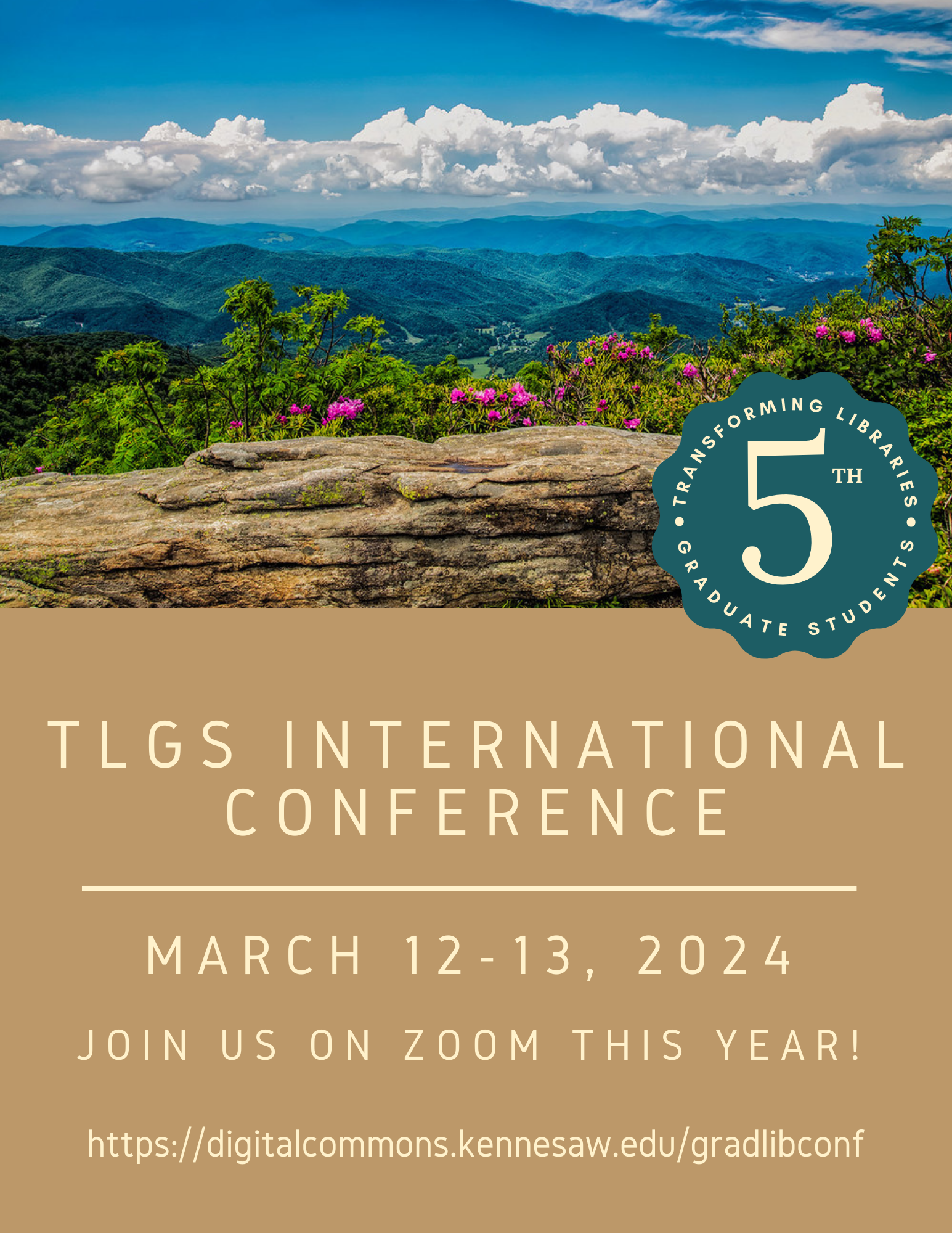Loading...
Start Date
3-13-2024 12:00 PM
End Date
3-13-2024 12:30 PM
Keywords
Information behavior, Information use, Research thinking, Insight, Affect
Description of Proposal
Information behavior (IB) is the study of how “individuals perceive, seek, understand, and use information in various life contexts” (Case & Given, 2012, p. 3). One component of IB—information seeking—was popularized by Carol Kuhlthau in the 1980s when she integrated the cognitive, affective, and physical acts involved in conducting a library-based research assignment. In her studies with high-schoolers and later with undergraduates, Kuhlthau developed the information search process (ISP) model. Since then, librarians have continued to draw on the ISP model and conduct information-seeking studies so that libraries may recognize “zones of intervention,” optimize the organization of library resources, and inform library services.
Over the years, information-seeking research has received more attention than other aspects of IB, and scholars have pointed to how more empirical research is needed to better understand “information use” (Kari, 2007; Savolainen, 2008; Vakkari, 1997). “Use” in this case does not refer to traditional library activities, such as checking out a book or downloading an article, but rather refers to what happens following the information seeking phase: an individual “uses” information intangibly (by thinking about the information and incorporating it into their “knowledge structures”), as well as tangibly (by acting on the information, such as incorporating it into a paper). LIS scholars who have undertaken studies that look at the intangible use of information have tended to draw on a cognitive constructivist framework. Todd (1999), for example, tracked how teenage girls’ exposure to heroin information changed their “knowledge structures,” and Cole (1998) interviewed history PhD students to better understand the nature of their “knowledge structures” when developing a thesis.
This presentation builds on this rich literature by sharing the findings from an exploratory qualitative research study. In winter 2022, the presenter received IRB approval to conduct interviews with eleven doctoral students in the social sciences at a large research university. The goal of the study was to understand how doctoral students’ thinking had been affected by pivotal sources, with a focus on any “moments of insight” that researchers may have experienced. Using reflexive thematic analysis, the presenter inductively and deductively code the interview data. This study found that pivotal sources affected the research thinking of doctoral students in six major ways; sources tended to 1) validate 2) expand 3) confirm 4) clarify 5) challenge and/or 6) consolidate one’s thinking. Furthermore, almost all students shared complex affective responses, and a few students elaborated on key moments of insight. By investigating the research thinking of doctoral students, this presentation contributes to the understudied area of “information use” within IB research and deepens our understanding of the intangible processes underlying the graduate research experience.
Accessing the intangible: An exploratory qualitative study of how pivotal sources affect doctoral students’ research thinking
Information behavior (IB) is the study of how “individuals perceive, seek, understand, and use information in various life contexts” (Case & Given, 2012, p. 3). One component of IB—information seeking—was popularized by Carol Kuhlthau in the 1980s when she integrated the cognitive, affective, and physical acts involved in conducting a library-based research assignment. In her studies with high-schoolers and later with undergraduates, Kuhlthau developed the information search process (ISP) model. Since then, librarians have continued to draw on the ISP model and conduct information-seeking studies so that libraries may recognize “zones of intervention,” optimize the organization of library resources, and inform library services.
Over the years, information-seeking research has received more attention than other aspects of IB, and scholars have pointed to how more empirical research is needed to better understand “information use” (Kari, 2007; Savolainen, 2008; Vakkari, 1997). “Use” in this case does not refer to traditional library activities, such as checking out a book or downloading an article, but rather refers to what happens following the information seeking phase: an individual “uses” information intangibly (by thinking about the information and incorporating it into their “knowledge structures”), as well as tangibly (by acting on the information, such as incorporating it into a paper). LIS scholars who have undertaken studies that look at the intangible use of information have tended to draw on a cognitive constructivist framework. Todd (1999), for example, tracked how teenage girls’ exposure to heroin information changed their “knowledge structures,” and Cole (1998) interviewed history PhD students to better understand the nature of their “knowledge structures” when developing a thesis.
This presentation builds on this rich literature by sharing the findings from an exploratory qualitative research study. In winter 2022, the presenter received IRB approval to conduct interviews with eleven doctoral students in the social sciences at a large research university. The goal of the study was to understand how doctoral students’ thinking had been affected by pivotal sources, with a focus on any “moments of insight” that researchers may have experienced. Using reflexive thematic analysis, the presenter inductively and deductively code the interview data. This study found that pivotal sources affected the research thinking of doctoral students in six major ways; sources tended to 1) validate 2) expand 3) confirm 4) clarify 5) challenge and/or 6) consolidate one’s thinking. Furthermore, almost all students shared complex affective responses, and a few students elaborated on key moments of insight. By investigating the research thinking of doctoral students, this presentation contributes to the understudied area of “information use” within IB research and deepens our understanding of the intangible processes underlying the graduate research experience.



What takeaways will attendees learn from your session?